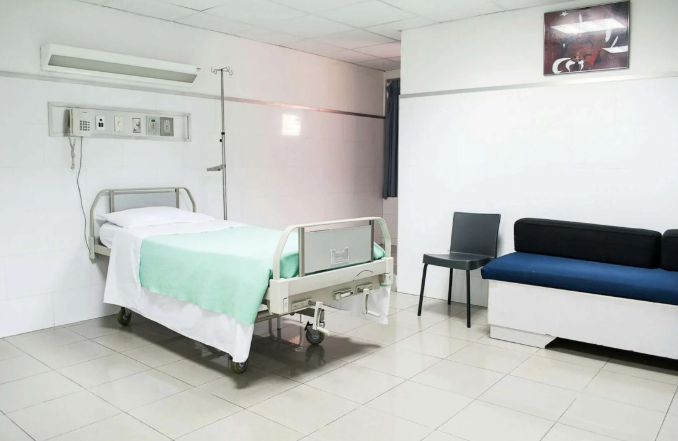Doctors last week prescribed an insurance reform designed to save primary care practices and ensure patients get timely care. Insurers, though, say another mandate is the last thing Massachusetts needs when health care costs are already a big problem and are asking lawmakers to seek a second opinion.
Massachusetts has consistently struggled to rein in high and growing health care costs. The great expense of care and a dearth of primary care providers means that many people put off preventative care. That often means they eventually end up in more serious and more expensive situations that also further stress a strained hospital system.
Rep. Lindsay Sabadosa’s bill (H 1309) heard by the Financial Services Committee would require that so-called evaluation and management services be included as part of an insurer’s basic benefits package, making those services exempt from patient deductibles, according to a bill summary. The Northampton Democrat said it meant that “several critical conditions” would be included “without co-pay or deductible, so that constituents can go in and get the health care that they need and not end up consistently in emergency rooms.”
Doctors whom Sabadosa introduced to testify Tuesday said high deductibles play a big part in keeping many people away from primary care that can decrease the cost of care over the long run.
“Every time there’s a cost-saving measure that doesn’t think about how it affects primary care, it ultimately costs the health care system more,” Dr. Kate Atkinson told the committee.
Doctors also said high deductibles end up hampering the very primary care practices that are already stressed by other factors.
“What people don’t understand is that many patients actually do not pay their bills and their deductibles, and in so doing, that shifts the cost to medical practices as well,” Dr. Wayne Altman, who has a practice in Arlington and is chair of the Department of Family Medicine at Tufts Medical School, said, describing deductibles as a massive administrative burden for doctor’s offices. “When people have primary care practices, what they really want to do is take care of their patients. They don’t want to bill patients for deductibles. We just want to take care of our patients. And this gets in the way.”
Atkinson was clearly frustrated as she told lawmakers that she recently laid off 11 employees from her Western Mass. family medicine practice and is no longer offering Saturday hours. The Mass. Medical Society trustee said the legislation Sabadosa filed “came from” the organization and that this year was the seventh time she’s testified on the issue.
“It is really frustrating to come year after year and testify, and nothing has changed for primary care doctors in this state, nothing,” she said. “In all of the past decade that I’ve been testifying, it’s become harder and harder to keep my practice afloat, I’m on the edge of bankruptcy, and measures like this are minor measures for the insurance company, but would be a big effort to keep patients healthier and to keep my practice going, and not just mine.”
Lora Pellegrini, president and CEO of the Massachusetts Association of Health Plans, said insurers are worried that Sabadosa’s bill and others the committee heard last week would drive up health care premiums for small businesses and individuals at a time when affordability is an urgent health care challenge for the state.
“Each of these bills would impose new requirements solely on the fully-insured market—made up primarily of small businesses and individuals—exacerbating affordability challenges without reducing overall system costs,” Pellegrini said.
Pellegrini said that federal law, including the Employee Retirement Income Security Act, is such that the additional costs would not be required to be covered by self-insured companies, which account for almost 60% of the insurance market. Federal regulations also prohibit eliminating cost-sharing for many services through high-deductible health plans, the choice of nearly 43% of commercially-insured Bay Staters, she said.
MAHP said plans already cover medically necessary outpatient care consistent with state and federal laws, and that eliminating cost-sharing entirely “would significantly drive up premiums.” The group urged lawmakers to defer action on the idea until the Center for Health Information and Analysis could complete a full cost impact analysis.
“Massachusetts is at a critical crossroads on health care affordability. With premiums continuing to rise, adding new mandates that increase costs for working families and small businesses takes us in the wrong direction,” the insurers’ group leader said. “MAHP urges the Legislature to protect affordability and oppose House Bill 1309, Senate Bill 764, House Bill 1227, and Senate Bill 809.”
The other legislation that Pellegrini and MAHP opposed last week (H 1227 / S 809) would require the Group Insurance Commission, MassHealth and commercial health insurers to provide coverage for biomarker testing, which can be used to personalize treatment for cancer.
“With biomarker testing, this allows care providers and doctors to pinpoint exactly what kind of treatment is going to be the most effective for a patient going through this battle. It can eliminate treatments that are devastating, from causing a patient to suffer through that. And it can lead to better outcomes, better quality of life, and it can give us that precious gifts of time,” bill sponsor Rep. Meghan Kilcoyne said. “And we’re also seeing that this can have huge implications on other diseases beyond cancer, such as Alzheimer’s.”
MAHP said that CHIA has estimated the biomarker testing mandate could increase health care costs by up to $35 million annually, with a five-year total expenditure surpassing $168 million. The group said the bill would impose the coverage “without sufficient standards for clinical efficacy or value.”

